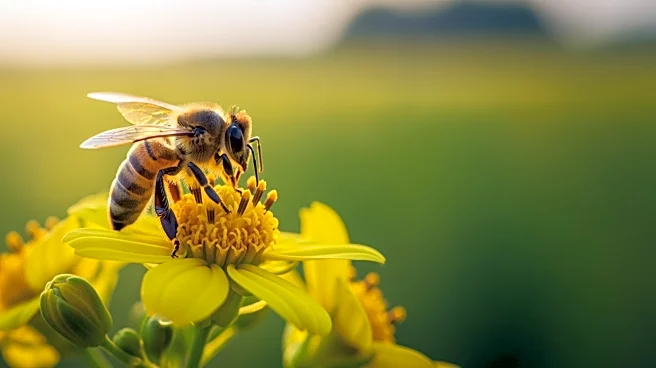Rapid Read • 8 min read
Houseplants are being recognized for their ability to naturally repel common kitchen pests, providing an alternative to chemical sprays. Certain plants, such as marigolds, lavender, and catnip, emit scents and oils that deter insects like gnats, moths, and mosquitoes. These plants not only enhance the aesthetic appeal of a kitchen but also serve practical purposes by keeping bugs at bay. Herbs like basil, mint, sage, and rosemary can be strategically placed to repel house and fruit flies while also being used in cooking. Marigolds and chrysanthemums are noted for their strong odors that drive away various insects, and carnivorous plants like the Venus flytrap offer a unique method of pest control by trapping and digesting insects.
AD
The use of houseplants as natural insect repellents is significant as it offers a sustainable and chemical-free method of pest control. This approach aligns with growing consumer preferences for eco-friendly solutions and can reduce reliance on potentially harmful pesticides. By integrating these plants into kitchen spaces, homeowners can maintain a cleaner and more inviting environment. Additionally, the dual functionality of these plants as both decorative elements and pest deterrents can enhance the overall living experience. This trend may influence gardening practices and consumer choices, encouraging more people to adopt natural methods for home maintenance.
As awareness of the benefits of using houseplants for pest control grows, it is likely that more households will incorporate these plants into their kitchens and other living spaces. Retailers may see increased demand for these specific plants, prompting them to expand their offerings. Gardening and home improvement sectors might also capitalize on this trend by providing educational resources and products that support natural pest management. Furthermore, research into additional plant species with similar properties could expand the range of options available to consumers.
The shift towards using houseplants for pest control reflects broader environmental and health-conscious movements. It highlights a cultural shift towards valuing natural and sustainable living practices. This development may also encourage further exploration into the benefits of plants in urban settings, potentially influencing public policy on green spaces and urban planning. The integration of natural solutions in everyday life could lead to long-term changes in consumer behavior and industry standards.
AD
More Stories You Might Enjoy










